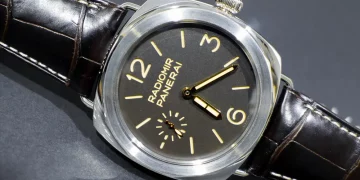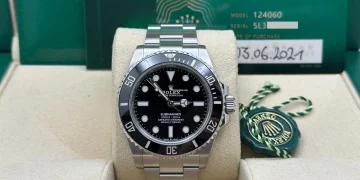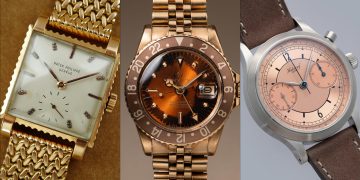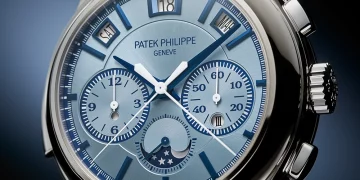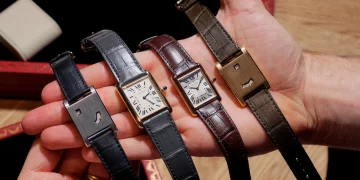Watches are more than just instruments for measuring time—they are symbols that carry profound cultural significance across the globe. While in some cultures, watches are regarded as practical tools to manage daily life, in others, they carry deeper meanings, acting as status symbols, gifts, or expressions of personal identity. From the lavish, intricate timepieces of Swiss luxury brands to the humble, practical watches used in remote villages, timepieces mirror the values, traditions, and social hierarchies of different societies.
In this article, we will explore how various cultures perceive and value watches, examining the symbolic meanings attached to timepieces in different parts of the world. We will investigate how watches transcend their functional role to become representations of cultural identity, wealth, and personal significance. Furthermore, we will look at the role of watches in modernity, status, and tradition, considering how global trends influence local values.
Watches as Symbols of Status and Prestige
In many cultures, watches are not merely functional tools for telling time, but rather symbols of status, prestige, and success. For example, in the Western world, high-end Swiss watches such as those from Rolex, Patek Philippe, and Audemars Piguet are often associated with wealth and social standing. These watches are worn as a way to showcase financial success and taste, with the brand name alone serving as a marker of social class. In this context, the luxury watch industry has carefully crafted timepieces to embody the ideals of refinement and success, making them aspirational objects.
In other parts of the world, such as in Asia, watches also reflect status but may carry different symbolic meanings. In China, for instance, gifting a high-end watch is often seen as a sign of respect, loyalty, and success. The watch culture in China has evolved significantly in recent decades, with collectors viewing luxury watches as a way to assert not only personal success but also to uphold cultural traditions of respect and prosperity.
Similarly, in Japan, where attention to craftsmanship and aesthetic detail are highly valued, high-quality watches such as those from Seiko or Grand Seiko are prized for their precision and design. These timepieces are symbols of perfection and refinement, often reflecting Japan’s deep-rooted cultural values of discipline, craftsmanship, and attention to detail.
Timepieces as Gifts and Tokens of Affection
In many cultures, watches are not just worn for personal utility or status, but also serve as tokens of affection or gifts. A watch given as a gift often signifies important milestones such as graduations, weddings, or birthdays, and is seen as a way to pass on a legacy. In many parts of Europe, watches are often handed down through generations, symbolizing family heritage and the passage of time.
In the Middle East, watches are frequently given as gifts of status between friends, family members, and business partners. These gifts often carry significant meaning, denoting the value of relationships and respect. Many high-end Swiss watch brands are popular in this region, where the watch can be a symbol of friendship, loyalty, and wealth. For example, watches with gold accents, diamond-encrusted bezels, or extravagant designs are favored as gifts in the Gulf states, where opulence is a core element of social life.

Watches and Personal Identity
In many cultures, watches reflect personal identity and individual values. For example, in the United States, watches have long been associated with self-expression. Brands like Apple Watch or Fitbit have revolutionized the watch industry, incorporating technology that goes beyond just telling time, serving as tools for fitness, connectivity, and personal data tracking. The smartwatch culture in the U.S. reflects a society that values innovation, technology, and practicality. Wearing a smartwatch not only signals technological proficiency but also expresses a desire to stay connected and keep up with the fast-paced modern world.
Meanwhile, in more traditional cultures, such as those in parts of Africa or India, watches are often more modest in design but still carry strong meanings of punctuality and respect for time. In these cultures, the act of giving a watch, especially to younger generations, is a symbol of encouraging discipline and the importance of time management. Watches are frequently seen as symbols of respect, especially when given by elders to younger family members as a reminder of responsibility and the value of hard work.
Watches in Religious and Cultural Ceremonies
Certain religious and cultural groups assign specific ritual significance to watches and timekeeping. For instance, in Islamic cultures, where prayer times play a central role in daily life, watches are often viewed as essential tools to ensure punctuality for religious duties. While muslim prayer watches are a specialized market, the emphasis on precise timekeeping for daily prayers is a key component of religious life. In many Islamic countries, watches are designed with features like compass functions or Islamic prayer time alerts, reflecting the role of time in fulfilling religious obligations.
In Judaism, watches also play an important role in the observance of sacred times. The Sabbath, for example, begins at sundown on Friday and continues until nightfall on Saturday. For many Jewish people, watches and clocks are essential for ensuring the timing of important events, including the beginning and end of Sabbath observance. In this context, time is not only about hours and minutes but also about observing religious obligations in harmony with the cycles of nature.
Watches as Symbols of National Pride
In several countries, watches are created to celebrate national pride and symbolize the cultural heritage of the nation. For example, in Switzerland, the creation of fine watches is seen as a national achievement, and Swiss timepieces are often viewed as representations of the country’s history and technical prowess. The Swiss watch industry has long been a symbol of national identity, with Swiss-made watches being recognized worldwide for their exceptional quality and craftsmanship.
Similarly, in Germany, the culture of watchmaking is intertwined with a sense of pride in engineering precision and quality craftsmanship. German brands like A. Lange & Söhne and Glashütte Original represent the country’s long-standing tradition of mechanical watchmaking, symbolizing the nation’s dedication to quality and precision engineering. These watches embody both individual craftsmanship and national pride, serving as representations of Germany’s cultural values.
Watches in Popular Culture and Media
The influence of watches extends far beyond their functional role into the realm of popular culture. Timepieces often serve as powerful symbols in films, television, and advertising, enhancing the cultural significance of watches and how they are perceived globally. Iconic characters like James Bond, who famously wears an Omega Seamaster, and Steve McQueen, known for his association with the TAG Heuer Monaco, have elevated watches from simple timekeeping devices to symbols of style, adventure, and individuality.
In Hollywood, watches have often been portrayed as essential accessories for heroes and villains alike. These portrayals influence how watches are seen in different cultures, with many individuals aspiring to own the same timepieces as their on-screen idols. Through this lens, watches serve as symbols of the lifestyle or persona one aspires to, making them an essential component of personal branding in the modern era.
Conclusion
Watches reflect a wide array of cultural values and meanings across the globe. Whether as status symbols, gifts, personal expressions, or markers of tradition, timepieces transcend their functional purpose to become powerful symbols of a culture’s values and ideals. The role of watches in religion, national pride, and popular culture further enhances their cultural significance. From luxury Swiss timepieces to modest everyday watches, the ways in which different societies perceive and value watches demonstrate how time is intertwined with deeper cultural beliefs about identity, respect, and success.







